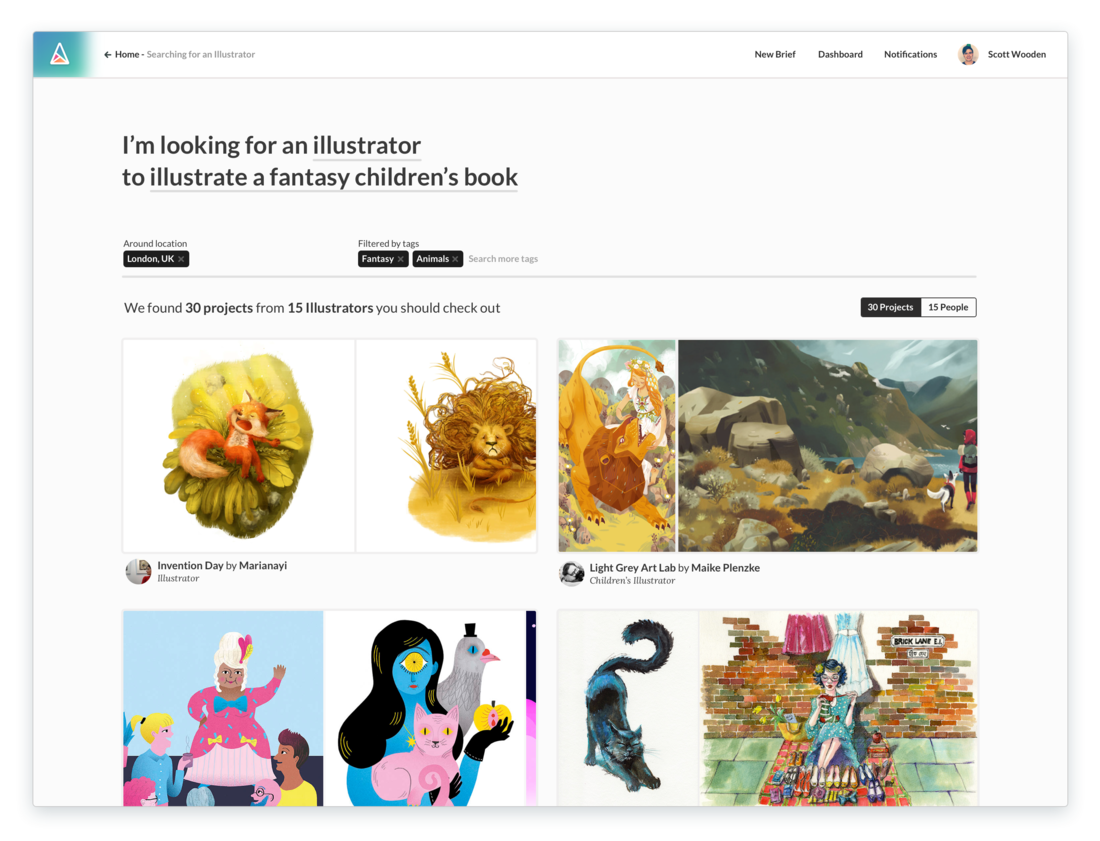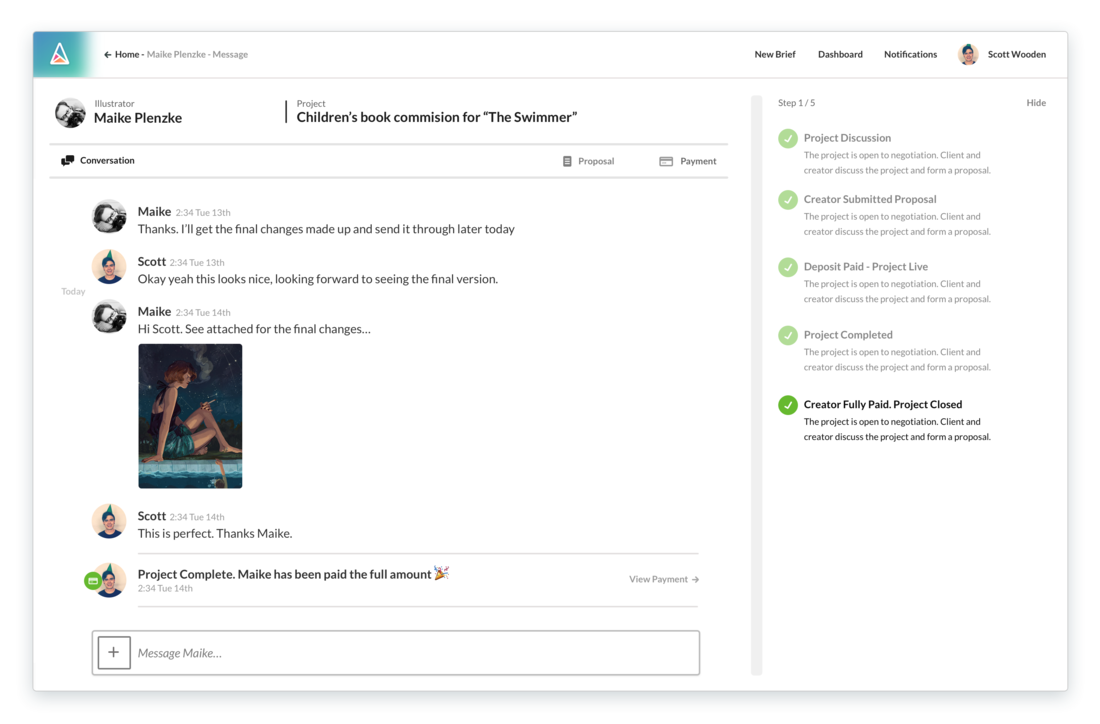A New Site Is Helping High-Quality Creatives Find Work—and Get Paid
 Easle.co.uk.
Easle.co.uk.
Around eight months ago, London-based web developers Nick Gubbins and Scott Wooden noticed a problematic trend in the creative industry. It was increasingly difficult to find satisfying freelance work and get paid fairly.
Among their friends, the pair encountered illustrators, designers, photographers, and filmmakers, and others, who were experiencing similar frustrations. “As we both came from digital product backgrounds, we set out to fix this through tech,” said Gubbins.
Their solution is Easle, a freshly launched online platform that aims to connect high-quality creatives with reliable clients across the globe. Through an algorithm, the site helps match creatives with jobs that are well-suited to their skills, and then facilitates the logistics of paperwork and payment.
The first phase of the website, specifically tailored to illustrators, launched in late March with a group of some 50 creatives represented on the site. Over the coming months they’ll roll out sections for other fields—from fine art to disciplines including music composition, journalism, and hair-and-makeup styling. “We’ve noticed corners of creativity that felt lost online without a true place” for people to display their work in order to get hired, said Gubbins. The pair saw an opportunity for Easle to “support more niche creative outlets.”
 Via easle.co.uk.
Via easle.co.uk.
With creative backgrounds of their own (Gubbins studied music; Wooden studied design and practices photography on the side), the founders tapped into their existing network of creatives to determine the specs of the site. They found that in addition to the difficulty of finding regular, reliable jobs, major pain points included negotiating contracts, invoicing, and receiving timely compensation. Without any outside funding, they began building Easle this past summer.
Creatives wishing to join Easle can apply on the site by submitting their portfolio. A committee, made up of Easle users already on the platform (part of the site’s focus on fostering a self-sustaining community), reviews applications and accepts those that meet the site’s quality requirements. Once approved, individuals can set up a profile that includes a brief bio as well as their social media accounts, past clients, and examples of past work.
Clients are vetted, too. Once approved they can set up portfolios and list projects they’re looking to farm out, complete with briefs, budgets, and other requirements.
Clients and creatives connect through a unique system to facilitate easy communication and payments. Through a custom messaging service (they liken it to the team collaboration app Slack), parties can determine and agree on the specifics of a given job; their conversation then generates a modifiable contract in a Google Doc. Once the contract is signed, the client pays Easle the full payment for the job, and 50% of that amount is sent to the creative as a deposit; they receive the rest upon completing the job. If something goes awry, either side can file a dispute. Easle takes a 10% cut of the total payment.
 Via easle.co.uk.
Via easle.co.uk.
Though they’re by no means the only freelancer-focused website in the game, Easle aims to distinguish itself through a focus on “quality across the platform, rather than a super low price point,” said Gubbins. “And we’re taking the vetting process seriously for creators and clients alike.”
Right now the Easle founders are first and foremost concerned with building up a rich, high-quality community, rather than expanding in size and reach. So far, they’ve received over 900 applications, from across Europe, the U.S., Australia, Hong Kong, and Singapore.
“We’re intentionally keeping strict limits on numbers, for the sake of creators and clients,” Gubbins said. “The idea is that every illustrator on that platform should be seeing a significant amount of work coming through on a monthly basis.”
—Casey Lesser


No comments:
Post a Comment